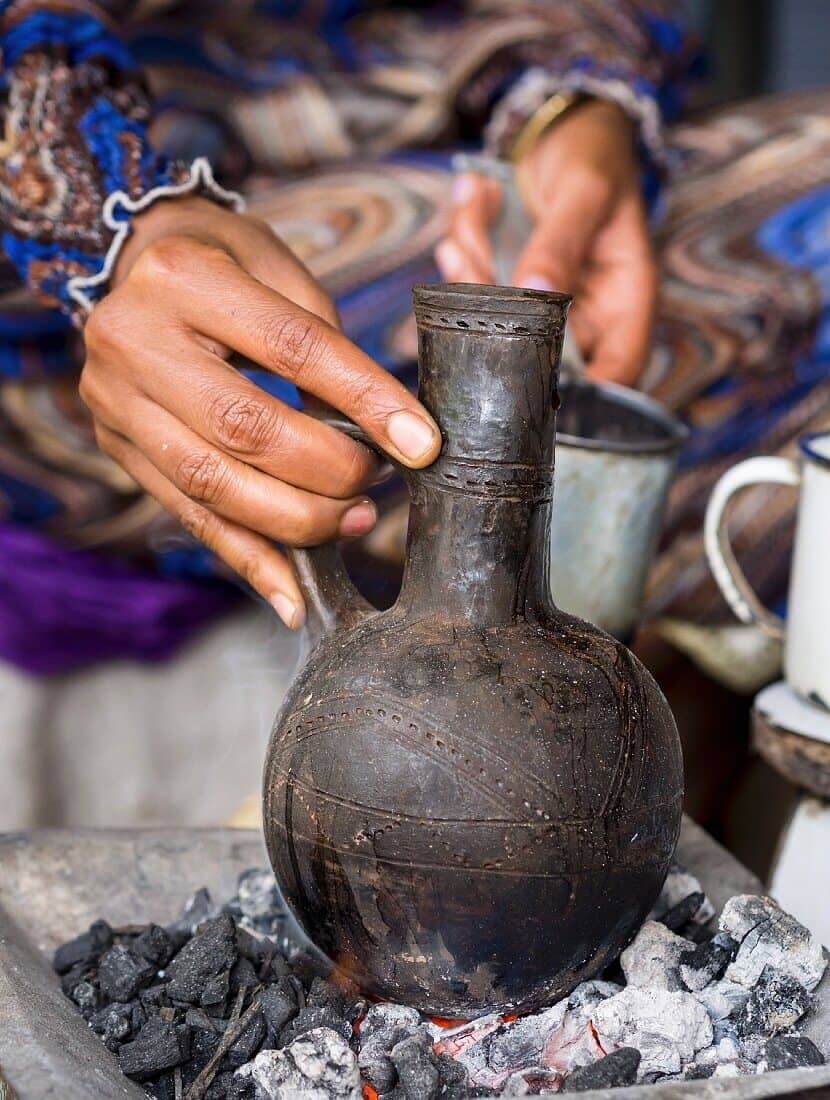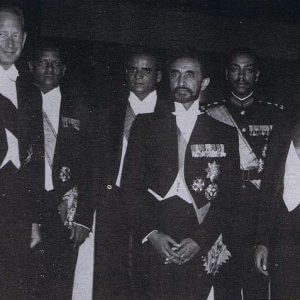Ethiopia is known as the birthplace of coffee, and its coffee culture is deeply ingrained in the country’s history and traditions. Coffee holds a special place in Ethiopian culture, with the country being one of the largest producers and exporters of coffee in the world. The importance of coffee in Ethiopian culture goes beyond just a beverage; it is a symbol of hospitality, friendship, and community. In this article, we will explore the significance of the traditional coffee ceremony in Ethiopian culture, as well as the steps involved in preparing and closing ceremony.
Key Takeaways
- Ethiopia has a rich coffee culture that dates back centuries.
- The traditional coffee ceremony is an important part of Ethiopian culture and is used to build relationships and socialize.
- The ceremony involves gathering ingredients and tools, roasting and grinding the coffee beans, brewing the coffee, and serving it to guests.
- Coffee is served in three rounds -Abol, Tona,and Baraka-symbolizing the deeding of participants.
- Hosting your own Ethiopian coffee ceremony can be a fun and unique way to experience the culture.
- In addition to coffee, exploring Ethiopian food, music, and art can provide a deeper understanding of the country’s rich cultural heritage.
Preparation of the Coffee Ceremony
Gathering the Ingredients and Tools
To prepare for the coffee ceremony, several ingredients and tools are needed. The most important ingredient is, of course, the coffee beans. In Ethiopia, coffee beans are typically sourced from local farmers and are known for their high quality and unique flavors. It is important to use fresh beans for the best results. In addition to coffee beans, other ingredients used in the ceremony include water and sometimes spices such as cardamom or cinnamon.
Essential and techniques for the ceremony

needed for the ceremony include a roasting pan, a mortar and pestle for grinding the beans, a jebena for brewing the coffee, small cups(sini) for serving and rekbot or arranging the ceremony items.
Ethiopian Traditional Coffee Ceremony Steps -by-Steps
Gathering of Participants
The ceremony begins with the gathering of family, friends, or neighbors, underscoring the social aspect that is central to Ethiopian culture. It’s an occasion where stories are shared, bonds are strengthened, and the sense of community is deepened. The host, traditionally a woman, prepares by spreading fresh, aromatic grass and flowers on the ground, creating a welcoming and sacred space. This preparation sets the stage for a communal experience that reflects the Ethiopian spirit of unity and hospitality.
Washing and roasting the coffee Beans

The ceremony typically begins with the host washing green coffee beans to remove any impurities. The preparation of the coffee starts with the roasting of green coffee beans. In the presence of the gathered participants, the host skillfully roasts the beans in a pan over an open flame, continuously stirring to ensure they roast evenly.
Grinding the coffee Beans

The aroma of the roasting beans is an integral part of the ceremony, signaling the start of the ritual. Once the beans reach a dark roast, they are ground by hand using a mortar and pestle. This traditional method of grinding is believed to preserve the coffee’s natural flavors and oils, resulting in a richer, more full-bodied brew.
Preparing the Jebena

Water is then boiled in a jebena, a traditional Ethiopian clay coffee pot with a distinctive spherical base, narrow neck, and pouring spout. The jebena is carefully watched, as the timing of the boil is crucial for the perfect brew.
Brewing the Coffee

The host transfers the ground coffee into the jebena, a traditional Ethiopian clay coffee pot, already filled with boiling water. This is a delicate step, requiring precise timing and temperature control to ensure the coffee brews correctly, releasing its full flavor and aroma. The jebena is then placed back over an open flame or a stove. The coffee is left to brew for several minutes, during which the anticipation builds among the guests.
Incense Burning

As the coffee beans are being roasted, frankincense or other aromatic incense is burned. The burning of incense is a gesture of purification and sanctification, adding a spiritual dimension to the ceremony. It fills the air with a sweet, resinous fragrance that complements the coffee’s aroma, enhancing the sensory experience of the participants and inviting good spirits while warding off the bad.
Pouring of Coffee

The pouring of coffee is an art form in itself, demonstrating the host’s skill and grace. Once the coffee is brewed to perfection, it’s carefully poured into final, small traditional cups called “cini” or “fincila”, from a height to prevent grounds from entering the cups and to create a thin layer of froth on top, signifying a well-made brew. This act is not just about serving coffee but is a gesture of respect and a way to welcome guests, enhancing the communal bond.
Variations

The procedure described above is common across Ethiopia. However, there are some variations. These are the most common ones: As the coffee begins to crackle as it is roasted, the hostess may add, cardamom, cinnamon, and cloves to the mix. In the countryside, coffee may be served with salt instead of sugar. In some regions of Ethiopia, butter or honey may be added to the brew.
Serving of Coffee

Traditionally, the youngest child at the ceremony presents the freshly brewed coffee to the eldest guest first, signifying respect and honoring Ethiopian social customs. The coffee is served with a side of popcorn or sometimes roasted barley, a pairing that complements the rich taste of the coffee. This moment is a reflection of Ethiopian hospitality, emphasizing the culture’s deep-rooted values of respect, community, and generosity.
The three rounds of coffee; Abol, Tona, and Bereka

The first round is Abol
The first round of coffee also referred to as Abol denotes the initiation of the ceremony. The coffee served in this round is brewed from the first round of roasted beans,the resulting in the strongest and most concentrated coffee. The Abol coffee is then poured into small sini cups and served to the guests, who savor the robust flavor and appreciated the expertise and attentiveness of the hostess in preparing the brew.
The second round is Tona
After the Abol round, the hostess replenishes the jebena with water and returns it to the heat source for second round brewing. The seconds rounds of coffee, known as Tona ,is slightly mellower than first, as the coffee grounds have already been utilized once. nevertheless, it retains the distinct flavors and aromas that are characteristics of Ethiopian coffee.
The final round
third and final round of coffee,’’Bereka’’. before serving the Bereka coffee, the hostess replenishes the jebena with water and allows the coffee to brew for the third time.
Enjoying the Coffee
As guests savor the coffee, the ceremony becomes more than just about drinking coffee; it’s an experience that engages all senses. The robust aroma of the coffee, the warmth of the cup in your hands, and the unique taste of Ethiopian brew create a moment of communal bliss. This is the time when conversations flow freely, stories are shared, and the bonds of friendship and family are strengthened. The Ethiopian coffee ceremony transcends the mere act of drinking coffee, embodying a profound communal and cultural experience.
Closing of the Ceremony
The coffee ceremony may go through three rounds, with the coffee becoming lighter with each brew. After the final round, the ceremony closes with expressions of gratitude and well-wishes. The host is complimented for the coffee, and guests often leave feeling a sense of peace and community. The ceremony not only offers a deep insight into Ethiopian culture but also leaves participants with a renewed appreciation for the ritualistic and communal aspects of coffee drinking.
Conclusion
The Ethiopian traditional coffee ceremony is much more than a method of preparing coffee; it is a profound cultural ritual that embodies hospitality, community, and tradition. Through each meticulously performed step—from roasting the beans to enjoying the brewed coffee together—participants experience a deep sense of connection and cultural heritage. This ceremony, deeply woven into the fabric of Ethiopian life, offers a unique window into the soul of Ethiopia, showcasing the importance of coffee not just as a beverage but as a vital component of social life and cultural identity. we cherish and share these traditions, inviting you to explore the rich tapestry of Ethiopian culture and the communal joy found in a simple cup of coffee.
FAQs
What is an Ethiopian traditional coffee ceremony?
An Ethiopian traditional coffee ceremony is a cultural practice that involves the roasting, grinding, and brewing of coffee beans in a ceremonial manner.
What are the steps involved in an Ethiopian traditional coffee ceremony?
The steps involved in an Ethiopian traditional coffee ceremony include washing the coffee beans, roasting the beans over an open flame, grinding the beans, brewing the coffee in a clay pot, and serving the coffee in small cups.
What is the significance of an Ethiopian traditional coffee ceremony?
An Ethiopian traditional coffee ceremony is a symbol of hospitality, friendship, and respect. It is a way of bringing people together and strengthening social bonds .
What are the materials used in an Ethiopian traditional coffee ceremony?
The materials used in an Ethiopian traditional coffee ceremony include a jebena (clay pot), a brazier (open flame), a wooden tray, small cups, and coffee beans.
What is the role of the coffee ceremony in Ethiopian culture?
The coffee ceremony is an important part of Ethiopian culture and is often used to mark special occasions such as weddings, births, and religious festivals. It is also a way of showing hospitality and respect to guests.
What is the history of the Ethiopian traditional coffee ceremony?
The Ethiopian traditional coffee ceremony has been practiced for centuries and is believed to have originated in the Kaffa region of Ethiopia, where coffee beans were first discovered. The ceremony has since spread throughout Ethiopia and is now an important part of the country’s cultural heritage.








